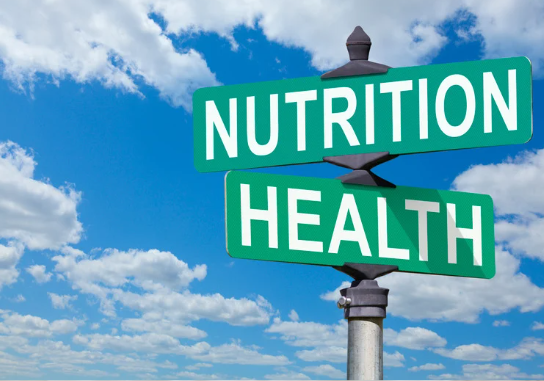Nutrition & Lifestyle for Recovery
Nutrition & Lifestyle for Recovery
Because your body’s healing superpowers deserve the right fuel.
Healing from a hysterectomy isn’t just about rest and patience. It’s also about giving your body the raw materials it needs to rebuild tissue, balance hormones, and restore energy. Think of this stage as your biological renovation phase. Every nutrient, every sip of water, and every hour of good sleep helps the process.
Eat to Heal
After surgery, your body enters overdrive mode to repair tissue and fight inflammation. Food is not a luxury here. It’s medicine.
Focus on meals that are rich in protein, vitamins, and healthy fats. Protein is the building block for new cells and collagen. Aim for roughly 1.2 to 2 grams per kilogram of body weight per day. That’s about one palm-sized portion of lean meat, fish, eggs, or tofu at each meal.
Refrain from eating Ultra Processed Foods, or foods high in sugar. These can cause inflammation, water retention and hamper the healing process.
Add a rainbow of vegetables for vitamins A, C, and K, all vital for immune function and wound healing. Include whole grains and legumes for fibre and steady energy. Omega-3 fats from salmon, flaxseed, or walnuts help calm inflammation and support mood.
💡 Quick tip: You do not need an expensive supplement routine. Real food does the job beautifully unless your doctor tells you otherwise.
If you remember only one thing, let it be this.
Hydration makes every healing process work better. It keeps blood volume steady, supports nutrient delivery, and helps your bowels behave.
Hydration: Simple, Boring, Essential
Aim for six to eight glasses a day and more if you’re moving around or it’s warm. If water feels dull, herbal teas, diluted juice, or a slice of lemon can make it easier. Your bladder might be a little shy at first, but frequent, gentle hydration helps it settle faster.
Support Collagen and Repair
Collagen is what knits wounds and gives tissue its stretch and strength. To make it, your body needs vitamin C, zinc, and amino acids. You’ll find these in foods like citrus fruits, berries, pumpkin seeds, poultry, and beans.
If you’re eating well, supplements are rarely necessary. But if your appetite is low, a balanced recovery shake with protein, vitamin C, and zinc can be a simple safety net.
Feed Your Gut, Calm Your Mind
The gut and brain are on the same team, especially during recovery. After surgery and antibiotics, your gut bacteria can get a little grumpy. Support them with prebiotic foods like oats, garlic, onions, and bananas, and probiotics such as live yoghurt, kefir, or fermented vegetables.
A calm gut means better digestion, steadier mood, and less bloating. Studies also show a healthier microbiome helps regulate inflammation and may even improve wound healing.
If you’re sensitive to dairy or certain fibres, go gently and introduce these foods slowly. The goal is comfort, not perfection.
Rest Is Fuel
Sleep is not optional. It’s when your body releases growth hormone, repairs tissue, and regulates pain perception. Create a calm bedtime ritual with low lights, soft stretches, and no screens. If hot flushes or discomfort wake you, try breathable bedding and keep water nearby.
Even short naps during the day count. Healing takes energy, and your body is using more of it than you realise.
Gentle Activity
Movement is part of recovery, not separate from it. Short, frequent walks support circulation, digestion, and lymph flow. Think of them as your body’s internal housekeeping service.
You don’t need to “exercise” yet, just move regularly. Every hour, stand up, stretch, walk to the bathroom, or sway side to side. These micro-movements keep stiffness at bay and help prevent swelling.
We’ll cover structured movement and how to safely rebuild strength in the Return to Exercise section. For now, gentle consistency is the goal.
Healing can feel slow, but nutrition and lifestyle choices are powerful daily wins. Each time you eat well, hydrate, move, or rest, you’re telling your body, “I’ve got you.”
Mood, Motivation, and the Bigger Picture
Eat colourfully.
Drink water regularly.
Sleep deeply.
Move gently.
Speak kindly to yourself.
This is not the time to diet, and this is not the time to lose weight, your body needs food for fuel to repair and heal.
There is no perfect recovery routine.
There’s just your recovery… one meal, one walk, one deep breath at a time.
Evidence Summary
Based on research from ESPEN, ERAS, and multiple surgical nutrition reviews.
Studies show that balanced nutrition (adequate protein, fibre, hydration, and micronutrients) supports tissue repair, immune health, and bowel regularity after surgery.
Key findings:
Protein and energy intake speed wound healing (Broughton et al., 2006)
Hydration and fibre reduce constipation and straining
Stopping smoking and moderating alcohol improve circulation and recovery
Recovery isn’t just what happens in the hospital, it’s built daily on your plate, in your sleep, and through gentle movement.










